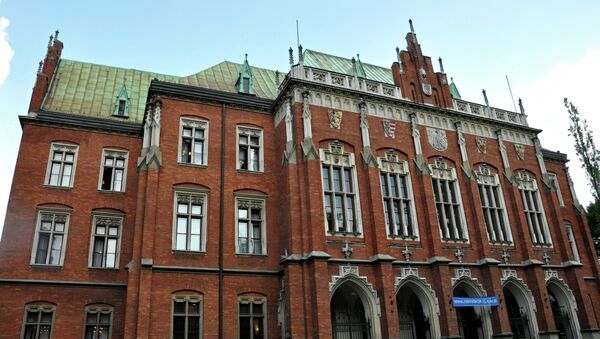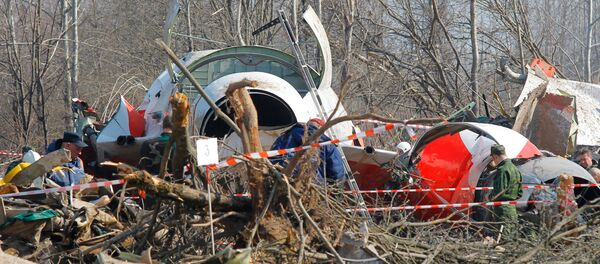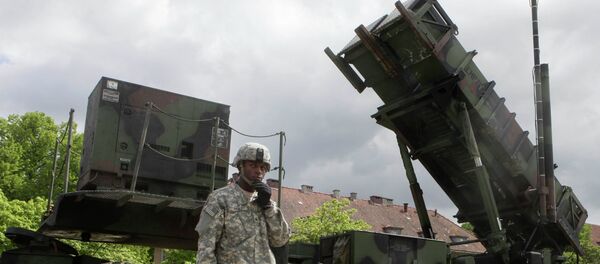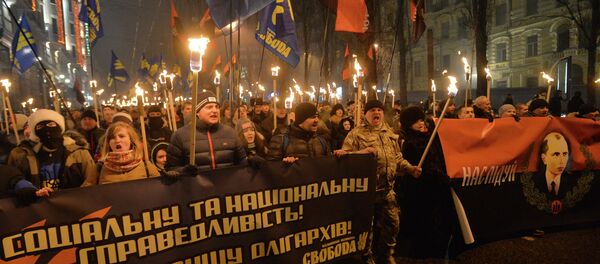But on Saturday Russia's RIA Novosti was told that the university's rector, Wojciech Nowak, had sent the ambassador a letter this week, informing him that his talk had been canceled in connection with the threat of disturbances, and apologized in connection with "this very uncomfortable situation." The Russian embassy responded by expressing "its sympathy with the administration of Jagiellonian University in connection with the very uncomfortable situation in which it had found itself."
Polish news portal Na Temat has explained that internet activists had begun organizing an effort to stop the lecture from taking place about three weeks ago, after Andreyev had appeared on Poland's TVN24 and stated that Russia has no aggressive intentions toward any country, and that there were no Russian military forces in eastern Ukraine.
The organizers' petition noted that it would be a "desecration" of the university's walls to conduct an academic discussion with Andreyev, who was characterized as a "representative of the Russian dictatorship." The petition condemned what it called Russia's "annexation" of Crimea, and criticized its alleged involvement in the ongoing civil war in eastern Ukraine.
Bizarrely, the organizers also referenced the tragic events of November, 1939, when the invading Nazi German occupation forces arrested nearly 200 scholars from Krakow, and said that Russia's present activities resemble those of the Third Reich in 1939. Incidentally, this January marked the 70th anniversary of Krakow's liberation by Soviet and Polish armies in 1945.
Opponents of the diplomat's visit to the university said that they would hold a protest outside the university if the meeting and talk was to take place.
Defending the planned meeting in Polish media earlier this week, Jagiellonian University spokesman Adrian Ochalik stated that the meeting had been planned as far back as last November, adding that the university has been conducting a series of lectures with ambassadors for over three years now, as part of an effort to give students an opportunity to discuss and debate issues in international politics face to face with representatives of other countries. Ochalik noted that similar meetings in the past have always taken place in a calm and polite atmosphere.





